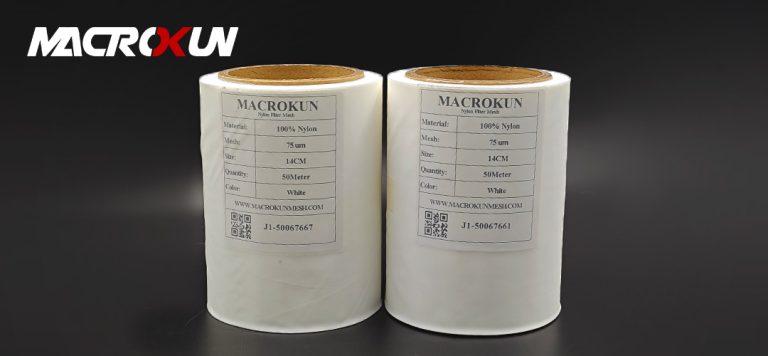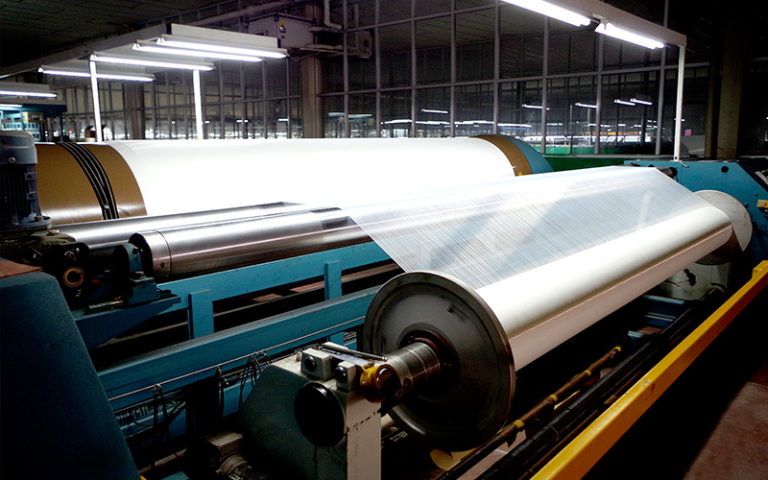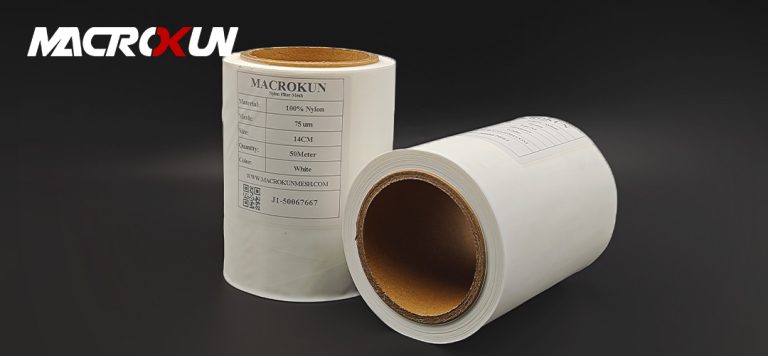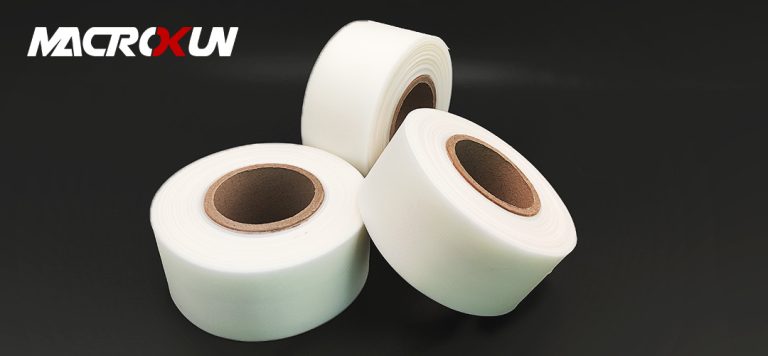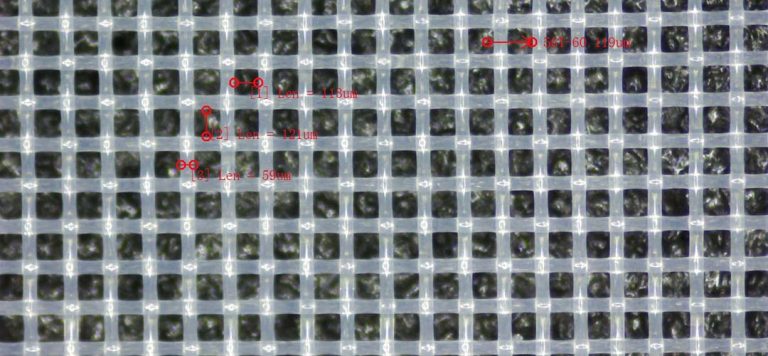Table of Contents
Industrial Applications of micron nylon mesh in Liquid Filtration
Micron nylon mesh has emerged as a pivotal material in various industrial applications, particularly in the realm of liquid filtration. Its unique properties, including high tensile strength, chemical resistance, and excellent filtration capabilities, make it an ideal choice for industries that require precise and efficient filtration solutions. One of the primary uses of micron nylon mesh in liquid filtration is in the food and beverage industry, where maintaining hygiene and product quality is paramount. In this sector, micron nylon mesh is employed to filter out impurities and contaminants from liquids, ensuring that the final products meet stringent safety standards. The mesh’s fine filtration capabilities allow for the removal of particles as small as a few microns, which is essential for producing clear juices, wines, and other beverages.
Moreover, the pharmaceutical industry also relies heavily on micron nylon mesh for liquid filtration processes. In this context, the mesh is utilized to ensure the purity of solutions and to remove any particulate matter that could compromise the efficacy of medications. The ability of micron nylon mesh to withstand various chemical environments further enhances its suitability for pharmaceutical applications, where it is often subjected to rigorous cleaning and sterilization processes. This durability ensures that the mesh maintains its structural integrity and filtration performance over time, making it a reliable choice for manufacturers.
In addition to food and pharmaceuticals, micron nylon mesh finds extensive use in the chemical processing industry. Here, it serves as a critical component in the filtration of various liquids, including solvents, acids, and other chemicals. The mesh’s resistance to a wide range of chemicals allows it to perform effectively in harsh environments, where traditional filtration materials might fail. By employing micron nylon mesh, companies can achieve higher levels of purity in their chemical products, which is essential for maintaining quality and compliance with industry regulations.
Transitioning to the environmental sector, micron nylon mesh plays a significant role in wastewater treatment processes. In this application, the mesh is used to filter out solids and other contaminants from wastewater before it is released back into the environment or subjected to further treatment. The use of micron nylon mesh in this context not only helps in protecting natural water bodies from pollution but also aids in the recovery of valuable resources from wastewater. By capturing suspended solids, the mesh facilitates the recycling of materials, contributing to more sustainable industrial practices.
Furthermore, the versatility of micron nylon mesh extends to its use in various filtration systems, including bag filters and cartridge filters. These systems are commonly employed across multiple industries, providing an efficient means of liquid filtration. The adaptability of micron nylon mesh allows it to be customized in terms of mesh size and configuration, catering to specific filtration needs. This flexibility ensures that industries can achieve optimal filtration performance tailored to their unique requirements.
In conclusion, the industrial applications of micron nylon mesh in liquid filtration are vast and varied, spanning food and beverage, pharmaceuticals, chemical processing, and environmental management. Its exceptional properties make it an indispensable material for achieving high levels of purity and efficiency in liquid filtration processes. As industries continue to prioritize quality and sustainability, the demand for micron nylon mesh is likely to grow, solidifying its role as a cornerstone in modern filtration technologies.
Benefits of Micron Nylon Mesh for Air Filtration Systems
Micron nylon mesh has emerged as a pivotal material in the realm of air filtration systems, offering a multitude of benefits that enhance both efficiency and effectiveness. One of the primary advantages of micron nylon mesh is its exceptional filtration capability. With its finely woven structure, it can capture particles as small as a few microns, making it ideal for applications where air quality is paramount. This level of filtration is particularly crucial in environments such as hospitals, laboratories, and manufacturing facilities, where airborne contaminants can pose significant health risks.
Moreover, the durability of micron nylon mesh contributes to its effectiveness in air filtration systems. Unlike traditional filter materials that may degrade or lose their structural integrity over time, nylon mesh is resistant to wear and tear. This resilience ensures that the mesh maintains its filtration properties over extended periods, reducing the need for frequent replacements. Consequently, this not only lowers operational costs but also minimizes downtime associated with filter changes, thereby enhancing overall system efficiency.

In addition to its durability, micron nylon mesh is also lightweight and flexible, which facilitates easy installation and integration into various air filtration systems. This adaptability allows engineers and designers to incorporate the mesh into diverse applications, from HVAC systems to industrial air purifiers. The ease of handling and installation further streamlines the maintenance process, enabling facilities to uphold optimal air quality with minimal effort.
Another significant benefit of micron nylon mesh is its chemical resistance. In many industrial settings, air filtration systems are exposed to a range of chemicals and pollutants. Micron nylon mesh can withstand exposure to various substances without compromising its structural integrity or filtration performance. This characteristic is particularly advantageous in environments where chemical vapors or corrosive agents are present, ensuring that the filtration system remains effective over time.

Furthermore, the mesh’s ability to be cleaned and reused adds to its sustainability profile. Unlike disposable filters that contribute to waste, micron nylon mesh can be washed and reinstalled, promoting a more environmentally friendly approach to air filtration. This reusability not only reduces waste but also aligns with the growing emphasis on sustainability in industrial practices, making it a preferred choice for organizations committed to reducing their environmental footprint.
The versatility of micron nylon mesh extends beyond its physical properties; it can also be engineered to meet specific filtration needs. By varying the mesh size and thickness, manufacturers can tailor the material to target particular contaminants, whether they be dust, pollen, or even larger particulate matter. This customization ensures that air filtration systems can be optimized for their intended applications, providing enhanced performance and reliability.
In conclusion, the benefits of micron nylon mesh for air filtration systems are manifold. Its superior filtration capabilities, durability, lightweight nature, chemical resistance, and reusability make it an invaluable material in maintaining high air quality standards. As industries continue to prioritize health and safety, the adoption of micron nylon mesh in air filtration systems is likely to increase, further solidifying its role as a cornerstone in effective air management solutions. By leveraging the unique properties of this material, organizations can ensure cleaner, safer air for their employees and customers alike, ultimately contributing to a healthier environment.
Comparing Micron Nylon Mesh to Other Filtration Materials
Micron nylon mesh has emerged as a prominent choice in the realm of filtration, particularly when comparing its efficacy to other filtration materials. This synthetic fabric, characterized by its fine mesh structure, offers unique advantages that make it suitable for both liquid and air filtration applications. When evaluating micron nylon mesh against traditional materials such as polyester, polypropylene, and metal filters, several key factors come into play, including filtration efficiency, durability, and versatility.

One of the most significant advantages of micron nylon mesh is its exceptional filtration efficiency. The fine mesh openings can be engineered to specific micron ratings, allowing for the precise capture of particles ranging from larger contaminants to microscopic impurities. This level of customization is often not achievable with other materials, such as polyester, which may have a more limited range of filtration capabilities. Consequently, industries that require stringent filtration standards, such as pharmaceuticals and food processing, often prefer micron nylon mesh for its ability to meet exacting specifications.
In addition to its filtration efficiency, micron nylon mesh is known for its durability. Unlike some traditional materials that may degrade or lose their structural integrity over time, nylon mesh exhibits remarkable resistance to wear and tear. This resilience is particularly beneficial in applications involving high flow rates or abrasive substances, where other materials might fail. For instance, in industrial settings where liquids contain particulates, nylon mesh can maintain its performance over extended periods, reducing the need for frequent replacements and thereby lowering operational costs.
Moreover, the versatility of micron nylon mesh further distinguishes it from other filtration options. It can be utilized in a variety of environments, from high-temperature applications to those involving aggressive chemicals. This adaptability is not always found in other materials, such as metal filters, which may be limited by their susceptibility to corrosion or thermal degradation. The ability of nylon mesh to withstand diverse conditions makes it an ideal choice for a wide range of industries, including automotive, aerospace, and environmental applications.
Transitioning from the physical properties of micron nylon mesh, it is also essential to consider its ease of maintenance. Unlike some filtration materials that require complex cleaning processes or are prone to clogging, nylon mesh can be easily cleaned and reused. This feature not only enhances its cost-effectiveness but also contributes to sustainability efforts, as it reduces waste associated with disposable filters. In contrast, materials like polypropylene may not offer the same level of reusability, leading to increased environmental impact.
Furthermore, the lightweight nature of micron nylon mesh facilitates its integration into various filtration systems without adding significant weight or bulk. This characteristic is particularly advantageous in applications where space is limited or where weight considerations are critical, such as in portable filtration devices. Other materials, such as metal filters, can be considerably heavier and may require additional structural support, complicating their use in certain scenarios.
In conclusion, when comparing micron nylon mesh to other filtration materials, it becomes evident that its unique combination of filtration efficiency, durability, versatility, ease of maintenance, and lightweight properties positions it as a superior choice for both liquid and air filtration applications. As industries continue to seek effective and sustainable filtration solutions, the adoption of micron nylon mesh is likely to grow, further solidifying its role as a leading material in the filtration landscape.

